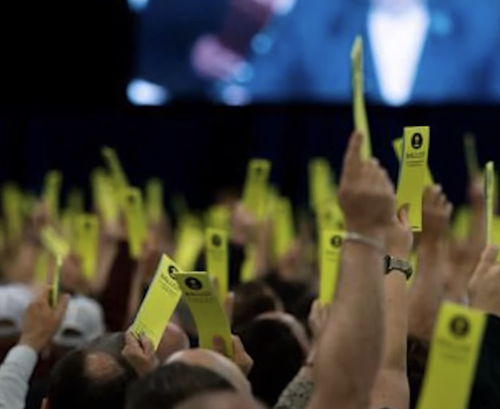Making headlines this past week: A tornado has devastated the Texas Panhandle town of Perryton, killing three people and injuring at least 75. As always, look for the “faith-based FEMA” to be among the helpers.
In Rome, Pope Francis has left the hospital where he had abdominal surgery nine days earlier. His surgeon says the pontiff is “better than before,” The Associated Press’ Francis D’Emilio reports.
This is our weekly roundup of the top headlines and best reads in the world of faith. We start with five key takeaways from the Southern Baptist Convention’s big annual meeting in New Orleans.
What To Know: The Big Story
1. No women pastors: As nearly 19,000 people — including 12,737 registered messengers — attended the SBC meeting, the nation’s largest evangelical denomination expanded restrictions on women in leadership.
See coverage by the New York Times’ Ruth Graham and Elizabeth Dias, Religion News Service’s Adelle M. Banks, the USA Today Network’s Liam Adams and Katherine Burgess, the Wall Street Journal’s Francis X. Rocca and the Washington Times’ Mark A. Kellner.
2. Saddleback out: The SBC rejected an appeal by Rick Warren to reinstate the California megachurch that he founded.
The reason for its ouster: It has women pastors. Also denied reinstatement: a smaller church with a female pastor in Louisville, Kentucky.
See coverage by The Associated Press’ Peter Smith, Christianity Today’s Kate Shellnutt, the Oklahoman’s Carla Hinton, RNS’ Banks and Bob Smietana and the Washington Post’s Michelle Boorstein.
3. Sex abuse reform: The debates about women’s roles threatened to push the issue that dominated last year’s meeting to the background.
But the slow work to address the abuse issue plodded on, as Christianity Today’s Kate Shellnutt explains.
4. The Rev. Bart Barber reelected: The small-town pastor from Farmersville, Texas, will serve a second one-year term as the SBC’s president.










